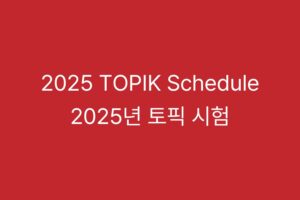
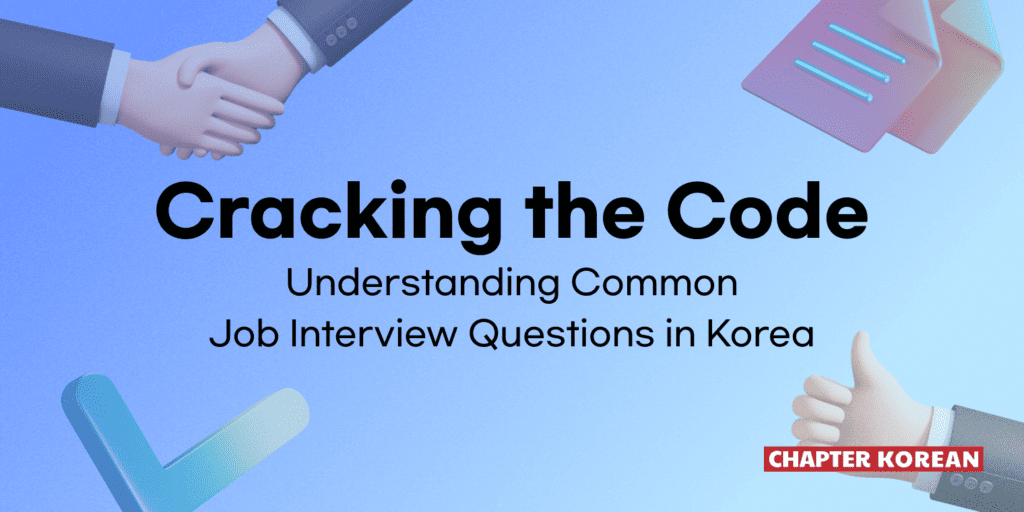
Embarking on a job search in Korea presents professionals with a distinctive set of challenges and opportunities. The Korean job market, shaped by its unique cultural nuances, requires a strategic approach to job interviews that extends beyond showcasing professional qualifications.
In this comprehensive guide, we’ll delve into the art of decoding common job interview questions in Korea. By providing nuanced insights into the cultural context, understanding prevalent interview questions, and assessing cultural fit, this guide aims to empower job seekers to crack the code and make a lasting impression in the competitive Korean job market.
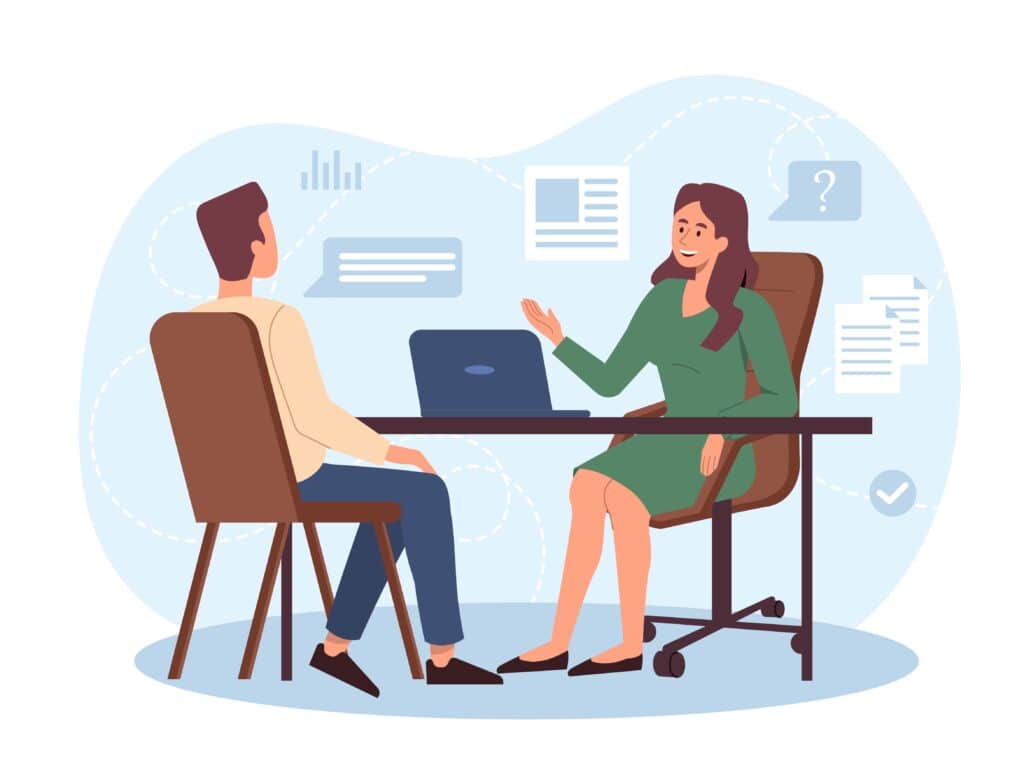
Job seekers are tasked with the essential responsibility of not merely introducing themselves but also offering a comprehensive overview of their background, educational milestones, and professional exploits. Navigating this introduction requires a finesse that goes beyond the recitation of facts; it demands a delicate equilibrium between confidence and humility.
The nuanced expectations of Korean employers emphasize the significance of confidently showcasing one’s strengths while maintaining an air of humility. Striking this balance is pivotal, as Korean employers appreciate candidates who exude self-assuredness in highlighting their professional prowess while exhibiting a humble demeanor. This delicate dance between confidence and humility reflects an understanding of the Korean cultural ethos, where modesty is a virtue, but self-assurance is equally valued.
Crafting a compelling introduction is akin to penning the opening chapter of a captivating narrative. It transcends the enumeration of educational qualifications and professional milestones. Instead, it beckons job seekers to weave a cohesive story that encapsulates their entire career trajectory. This narrative should be thoughtfully composed, offering more than a mere listing of achievements—it should provide a glimpse into the candidate’s personality, aspirations, and unique qualities that set them apart.
By infusing elements of personality into their introduction, job seekers can transform a routine exchange into a memorable and positive first impression. This personal touch not only humanizes the professional discourse but also creates a connection beyond the confines of a resume. Korean employers, in particular, value individuals who bring more than just a skill set to the table—they seek candidates whose personalities align with the ethos of the workplace.
Therefore, the art of crafting a compelling introduction in a Korean job interview involves more than rehearsing a list of qualifications. It’s about narrating a story that resonates with the cultural nuances of the professional landscape. The narrative should convey not only what the candidate has achieved but also who they are and how they envision contributing to the prospective workplace.
In essence, the introduction sets the tone for the entire interview. It is the job seeker’s opportunity to make a lasting impression, to be more than a name on a resume. By understanding the delicate balance required in Korean job interviews, job seekers can transform this seemingly routine aspect into a powerful tool for creating a connection, leaving an indelible mark, and paving the way for a successful professional engagement.
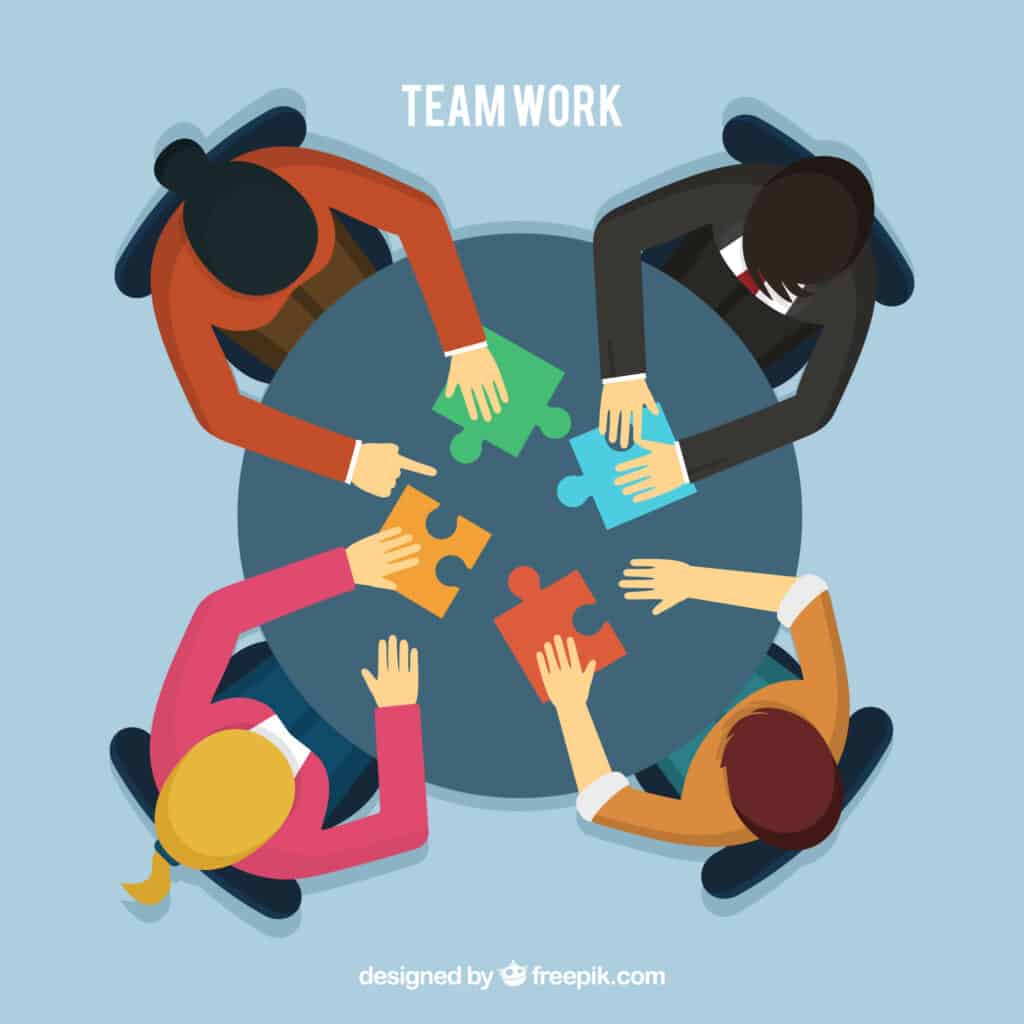
Korean workplaces place a strong emphasis on teamwork and harmony. Expect interview questions that assess your ability to work collaboratively within a team-oriented culture.
Sharing specific instances becomes instrumental in illustrating the depth of one’s teamwork skills. Job seekers are encouraged to delve into their professional history, recounting scenarios where they actively contributed to team goals, overcame challenges collectively, and played a pivotal role in creating a harmonious working environment. By painting a vivid picture of these experiences, candidates can effectively convey their ability to collaborate, cooperate, and thrive in a team-oriented culture.
Moreover, accentuating adaptability and effective communication within a team setting is a strategic move. Korean employers value individuals who not only bring their expertise to the table but can seamlessly integrate into existing teams, adapting to varied working styles and contributing positively to the overall synergy. Emphasizing adaptability showcases a readiness to navigate the ever-changing dynamics of the workplace, a quality highly prized in Korean professional settings.
Effective communication is the linchpin that holds successful teamwork together. Job seekers should highlight instances where their communication skills played a pivotal role in fostering understanding, resolving conflicts, and ensuring a smooth flow of information within the team. This emphasis underscores the candidate’s commitment to maintaining open lines of communication—an attribute highly valued in a culture that places a premium on collective success.
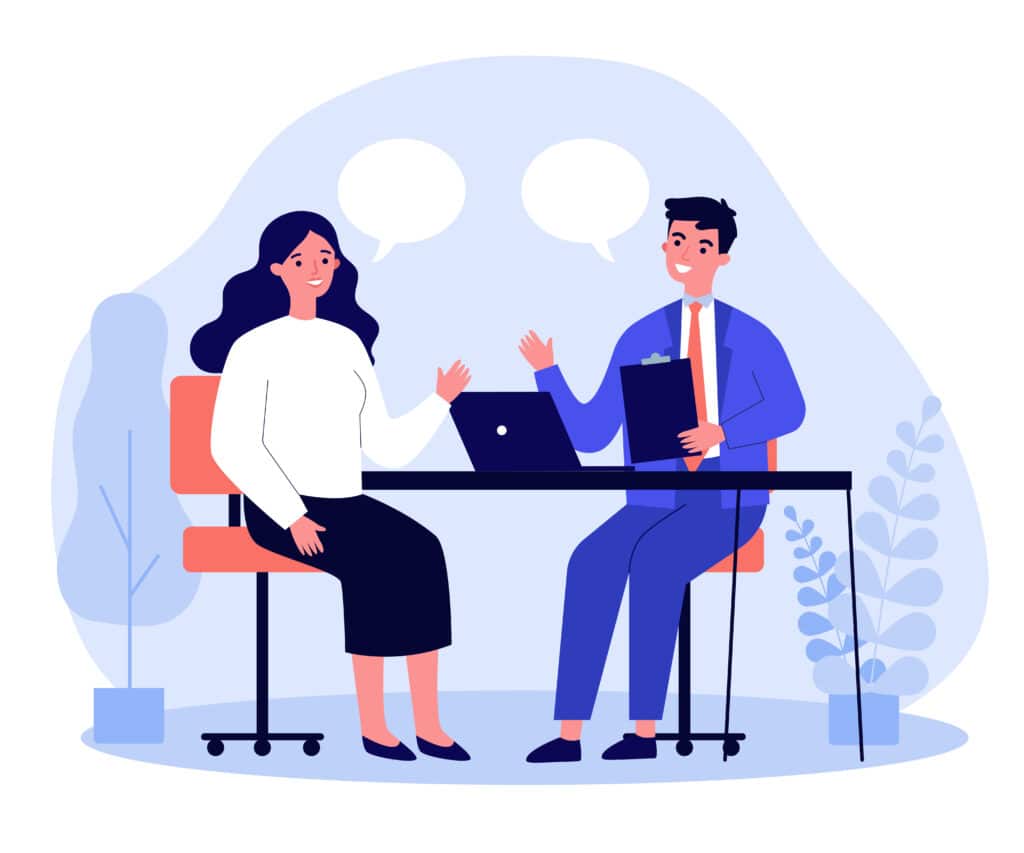
The seemingly innocuous question about oneself is a gateway to understanding a candidate’s professional journey and personal attributes. Crafting a concise yet engaging narrative is key. Job seekers should encapsulate their career trajectory, emphasizing relevant experiences and skills. An effective response should provide a snapshot of who the candidate is, both professionally and personally, leaving a memorable and positive impression.
For the “Can you tell us about yourself?” question in a job interview, it’s generally recommended to keep your response within 1 to 2 minutes. While you want to provide enough information to create a well-rounded impression of your professional background and skills, it’s essential to be concise and focus on the most relevant details. Aiming for a brief yet impactful response helps maintain the interviewer’s engagement and allows for a smoother transition into more specific questions.
For example:
“I am [Your Name], and I am thrilled to be here today. I hold a [Your Degree] in [Your Field] from [Your University], where I developed a strong foundation in [Key Skills]. My professional journey began at [Previous Company], where I [Briefly Describe Previous Role and Achievements].
During my time there, I realized the importance of effective teamwork and communication, values I understand are highly esteemed in Korean workplaces. One notable project involved [Provide Brief Details], which not only honed my problem-solving skills but also highlighted the significance of collaboration.
Beyond my professional pursuits, I am deeply passionate about [Personal Interest or Hobby], which I believe brings a unique perspective to my work.
I am drawn to [Prospective Company] because of its commitment to [Company Value or Initiative], and I am eager to contribute my skills and experiences to [Specific Contribution You Hope to Make].”

This question delves into a candidate’s understanding of the company culture, values, and achievements. Job seekers must tailor their response to showcase their knowledge while demonstrating how their professional goals align with the organization’s mission and objectives. Researching the company thoroughly and highlighting specific aspects that resonate with personal and professional goals can set a candidate apart.
For example:
“I am genuinely excited about the prospect of contributing to [Company Name]. In my research and conversations with current employees, I’ve been impressed by the company’s commitment to [specific aspect, such as innovation, sustainability, or a particular initiative].
Your dedication to fostering a collaborative and inclusive work culture, which I believe is a cornerstone of success, resonates with my professional values. I am drawn to the way [Company Name] [specific achievement or project], and I am eager to be a part of a team that consistently pushes boundaries and strives for excellence.
I am confident that my skills in [key skills relevant to the position] and my passion for [industry or field] make me a valuable addition to the innovative and dynamic environment here at [Company Name]. I am excited about the opportunity to contribute my expertise and grow professionally within your esteemed organization.”
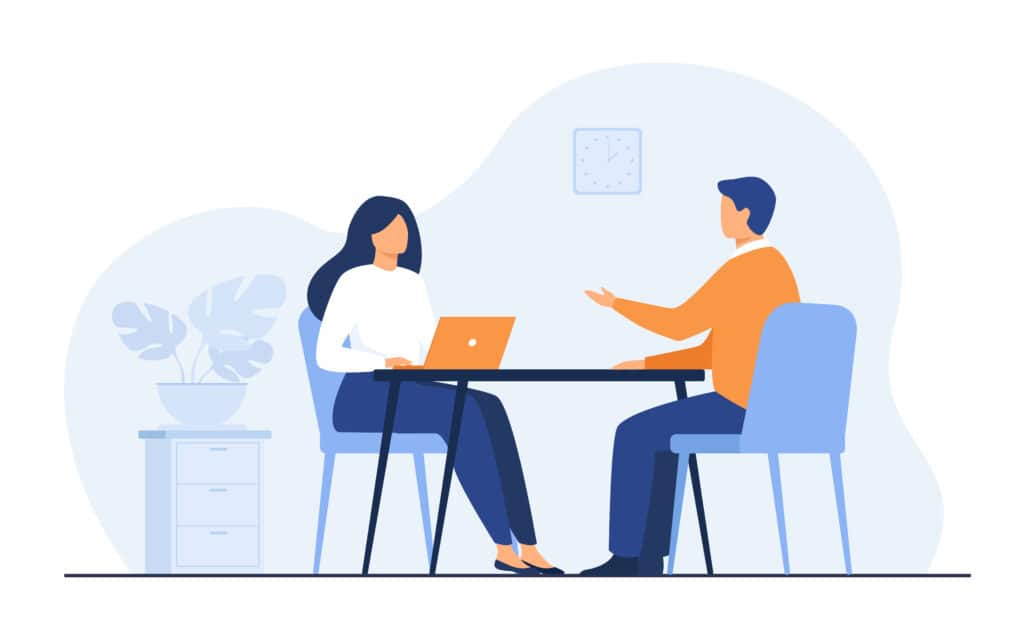
When discussing strengths, candidates should highlight qualities that align with the job requirements. For weaknesses, the focus should be on areas where growth and improvement have been demonstrated, emphasizing a commitment to continuous learning. Striking a balance between confidence and humility is essential, as Korean employers appreciate self-awareness and a proactive approach to personal development.
For example:
“One of my key strengths is my ability to [mention a specific skill or quality relevant to the job]. In my previous roles at [Previous Company], I consistently demonstrated proficiency in [Highlight a relevant achievement or task].
As for areas of improvement, I recognize that I can be overly meticulous at times. While this attention to detail has been an asset in ensuring accuracy in my work, I am continually working on finding a balance to streamline processes without compromising quality. I actively seek feedback and am committed to ongoing professional development to enhance this aspect of my work.
I view my weaknesses as opportunities for growth, and I am proactive in addressing them. This self-awareness, I believe, contributes to my overall effectiveness as a professional.”
Stress management is a crucial aspect of Korean work culture. Candidates should share specific strategies they employ to cope with stress while highlighting adaptability and resilience. Demonstrating the ability to handle pressure situations positively is highly valued, as it aligns with the Korean cultural emphasis on maintaining composure in the face of challenges.
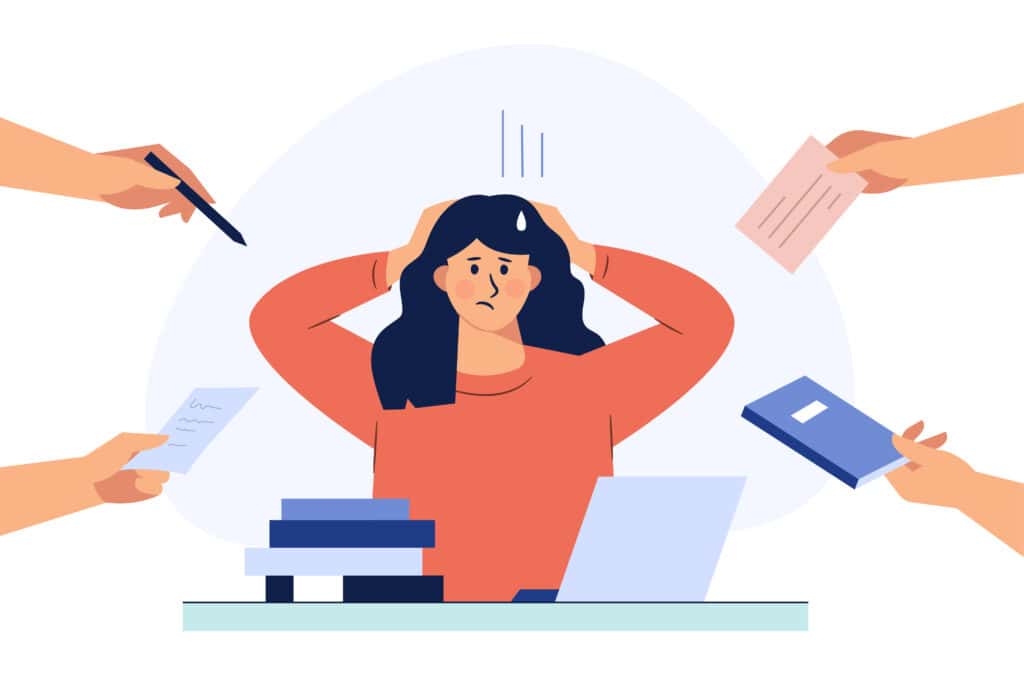
For example:
“I approach stress as an inevitable aspect of any dynamic work environment. To manage stress effectively, I’ve developed a multifaceted strategy. Firstly, I prioritize time management, breaking down tasks into manageable segments and setting realistic deadlines. This allows me to maintain a clear focus and stay organized, mitigating potential stressors.
Additionally, I actively engage in mindfulness techniques, such as deep breathing and short breaks, to recalibrate during hectic periods.
I also recognize the importance of seeking guidance when faced with particularly challenging situations. Whether through mentorship or discussing concerns with my supervisor, I appreciate the value of collective problem-solving.
Overall, my approach to handling stress is centered on proactive planning, mindfulness, effective communication, and seeking support when necessary. I believe this well-rounded strategy enables me to navigate high-pressure situations while maintaining productivity and a positive work environment.”
While expressing ambition, candidates should ensure that their response reflects a commitment to long-term collaboration with the company. Korean employers appreciate loyalty and dedication, and candidates should convey a vision that aligns with the company’s growth trajectory. Demonstrating a clear understanding of one’s career path within the organization reflects positively on a candidate’s commitment and foresight.
Korean employers value candidates who are proactive in their professional development. Expect questions related to how you stay informed about industry trends. Showcase your commitment to staying updated through continuous learning, attending relevant seminars, and engaging with industry publications.
This question assesses a candidate’s problem-solving abilities and resilience. Provide a detailed account of a challenging situation, highlighting the steps you took to address it and the positive outcomes. Emphasize the lessons learned and how the experience contributed to your professional growth.
Korean job interviews often follow a formal structure. It’s customary to address the interviewer using appropriate titles and honorifics. Job seekers should pay attention to cultural nuances, expressing respect and humility throughout the interview process.

Dressing professionally is paramount in Korean job interviews. Conservative and formal attire is generally expected, reflecting the importance placed on appearances and first impressions.
Korean workplaces often adhere to hierarchical structures, where age and seniority play a significant role. Be prepared for questions related to your willingness to respect and adapt to the hierarchical culture.
Non-verbal communication, such as body language and facial expressions, carries weight in Korean job interviews. Maintaining eye contact, a respectful posture, and attentive listening are considered essential.
Cracking the code of job interviews in Korea requires a nuanced understanding of the cultural landscape. Beyond showcasing professional expertise, candidates must emphasize qualities such as adaptability, teamwork, and a commitment to long-term collaboration. By preparing thoughtful responses to common questions, job seekers can navigate interviews successfully while demonstrating their cultural acumen-a valuable asset in the competitive Korean job market.
Each interview serves as a learning opportunity, allowing candidates to refine their ability to decode the unique language of Korean job interviews. It’s essential to approach each interaction with a willingness to adapt and a genuine interest in understanding and aligning with the cultural nuances of the Korean workplace. In the dynamic and competitive Korean job market, the ability to decode interview questions is not just a skill-it’s a gateway to professional success. Good luck!
Chapter Korean offers online classes in Business Korean. Join us and find the job of your dreams in Korea!

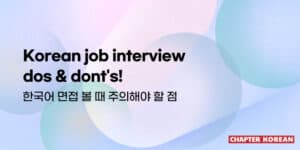
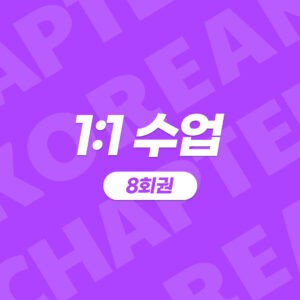
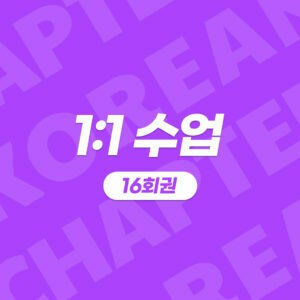
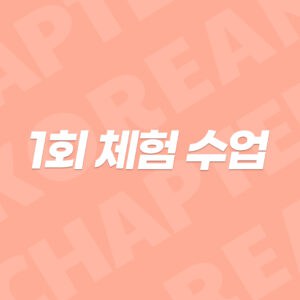
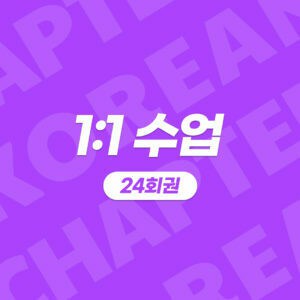
주식회사 챕터코리안, 대표 김대광 | 사업자등록번호 : 471-88-02872 | 통신판매업신고번호 : 제2024-서울중구-1387호| 서울 퇴계로 36길 2 812호
대표번호 : +82-10-2981-4359 | 이메일 : [email protected]
이용약관 | 개인정보처리방침 | Cookie Settings
Copyright 2023 © ChapterSeoul